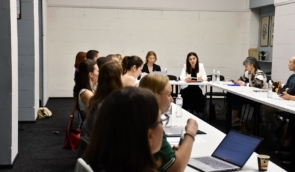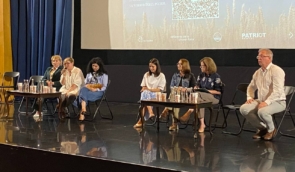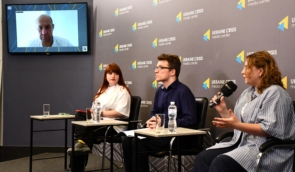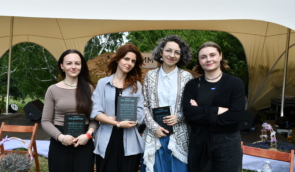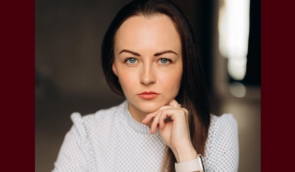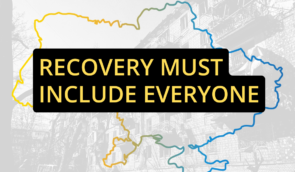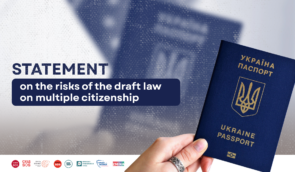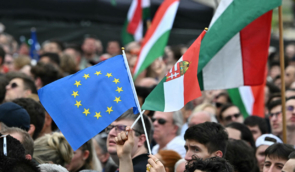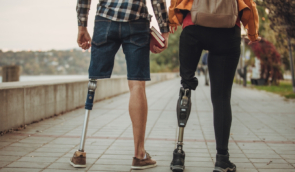Human rights activists suspect more than 90 people of prosecuting Crimean journalists and bloggers
On November 2, International Day to End Impunity for Crimes against Journalists, human rights defenders named those involved in the prosecution and pressure on independent journalists in occupied Crimea.
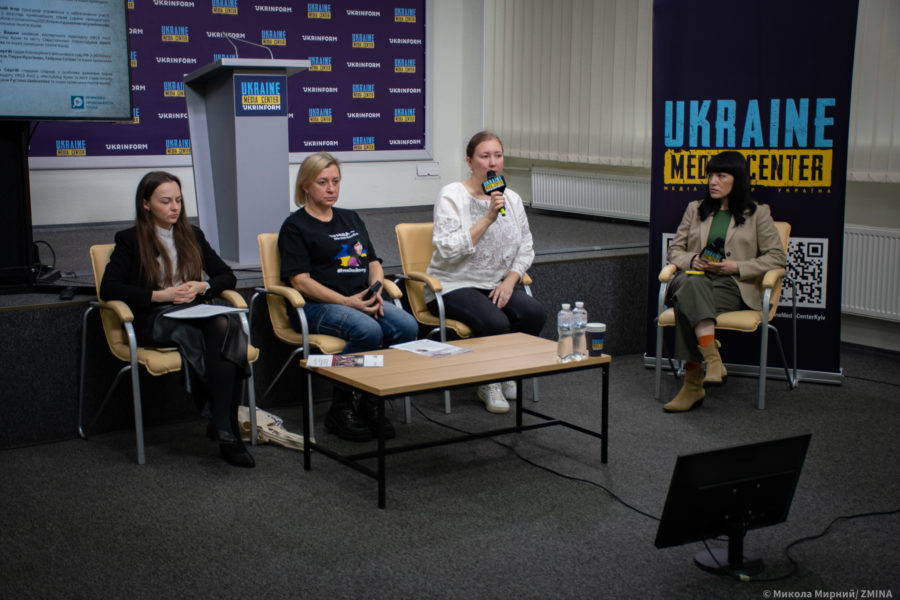
According to Olha Skrypnyk, Head of the Crimean Human Rights Group, at least 15 citizen and civilian journalists are illegally held by the Russians in occupied Crimea. All of them are imprisoned on fabricated cases.
Among the journalists illegally held by the occupiers, she mentioned Oleksiy Bessarabov, Vladyslav Yesypenko, Seyran Saliyev, Marlen Asanov, Tymur Ibrahimov, Server Mustafayev, Osman Arifmemetov, Remzi Bekirov, Ruslan Suleymanov, Rustem Sheikhaliyev, Amet Suleymanov, Asan Akhtemov, Iryna Danylovych, Vilen Temeryanov, Ernes Ametov, as well as Nariman Dzhelyal, the Deputy Chairman of the Mejlis of the Crimean Tatar People, imprisoned, in particular, for trying to reveal the truth about the events in Crimea.
Human rights defenders spoke about the public list of criminals who work in Crimea and hold high positions in law enforcement agencies:
- Andrey Giba, deputy head of the “investigative department of the FSB of Russia in Crimea” – prosecuted Vladyslav Yesypenko and other political prisoners
- Anna Turobova, “prosecutor” of the “Crimea Prosecutor’s Office” – prosecuted Iryna Danylovych and other political prisoners
- Aleksandr Mordovin, judge of the military court of appeal of the Russian Federation (as of February 2022) – prosecuted Osman Arifmemetov and other political prisoners
- Oleg Egorov, judge of the military court of appeal of the Russian Federation – prosecuted Remzi Bekirov and other Crimean political prisoners
- Anatoliy Solin, judge of the military court of appeal of the Russian Federation (as of November 2022) – prosecuted Amet Suleymanov and other political prisoners
- Anton Tsykurenko, “judge” of the “Kyivskyi District Court” of Simferopol –prosecuted Osman Arifmemetov, Remzi Bekirov and other political prisoners
- Igor Kostin, judge of the Southern Military District Court of the Russian Federation (as of July 2022) – prosecuted Amet Suleymanov and other political prisoners
- Igor Nadolinskyi, prosecutor of the department for ensuring the participation of prosecutors in consideration of criminal cases by the courts at the prosecutor’s office of Rostov region (as of 2021) – prosecuted Amet Suleymanov and other 22 Crimean political prisoners
- Vadim Merkulov, head of the “expert unit of the Department of the FSB of the Russian Federation for the Republic of Crimea and the city of Sevastopol” – prosecuted Amet Suleymanov and other Crimean political prisoners
- Sergey Vinnik, judge of the military court of appeal of the Russian Federation (since 2019) – prosecuted Tymur Ibrahimov, Seyran Saliyev and other Crimean Muslims
- Sergey Makhniov, “senior investigator for particularly important cases” of the “investigative department” of the Department of the FSB of the Russian Federation for “the Republic of Crimea and the city of Sevastopol” – prosecuted Rustem Sheikhaliyev and other Crimean political prisoners
Viktoria Nesterenko, project manager at Human Rights Centre ZMINA, reported that ZMINA had recorded 142 cases of attacks and threats against journalists, editors of traditional and online outlets, Telegram channels, and online activists in Crimea since the beginning of the full-scale aggression. Of these, 82 cases were documented in 2022 and 60 cases – since the beginning of 2023.
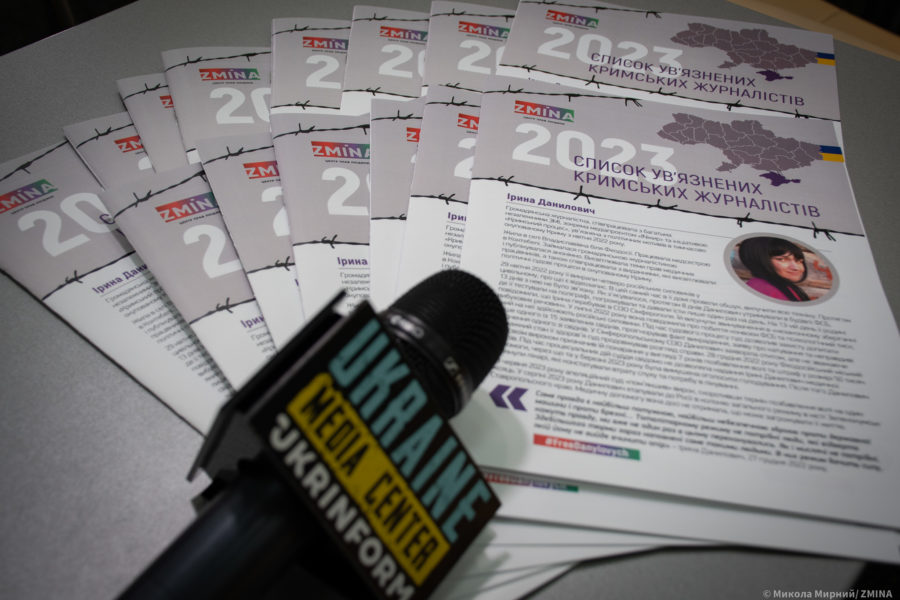
According to her, the most common methods of attacks on media workers and civilian journalists are detentions, arrests and fines on charges of administrative offenses, as well as criminal prosecution of journalists.
She noted that the occupiers systematically refused to provide medical care to Crimean political prisoners: “One of the mechanisms of pressure on political prisoners is the failure to provide medical care, which, according to the Geneva Conventions, is recognized as the use of torture, that is, a gross violation of human rights. Among the illegally imprisoned journalists are those who have chronic diseases, disabilities, or received serious diagnoses already during imprisonment. This is Iryna Danylovych who suffered a stroke and otitis in the Simferopol pre-trial detention center, as a result of which she lost hearing in one ear. This is Amet Suleymanov who needs heart surgery and for whom imprisonment carries mortal danger. This is Vladyslav Yesypenko, a journalist of Crimea.Realities project, who was kidnapped in Crimea, illegally imprisoned and survived torture. Employees and heads of penitentiary institutions and medical services refuse to provide medical assistance, that is, they reject complaints of political prisoners about the deterioration of their health, forbid them from visiting a doctor, receiving medicines from relatives, or take medicines from them during transfer,” Nesterenko emphasized.
The Russian authorities do not punish officials and security forces who deliberately do not provide assistance to sick political prisoners, and do everything possible to hide the crimes of these people. Impunity and inaction contribute to new and new crimes, CHRG researcher Iryna Siedova believes.
“Several dozen people are responsible for the prosecution of one Crimean journalist. These are not only representatives of the FSB and the investigative committee, but also the employees of the penitentiary service who facilitate torture and create inhumane conditions of detention for imprisoned journalists. We also included representatives of healthcare institutions who work in places of detention in this list of culprits. After all, these workers are, first and foremost, guilty of deliberately not providing medical care to imprisoned journalists and bloggers,” Siedova says.
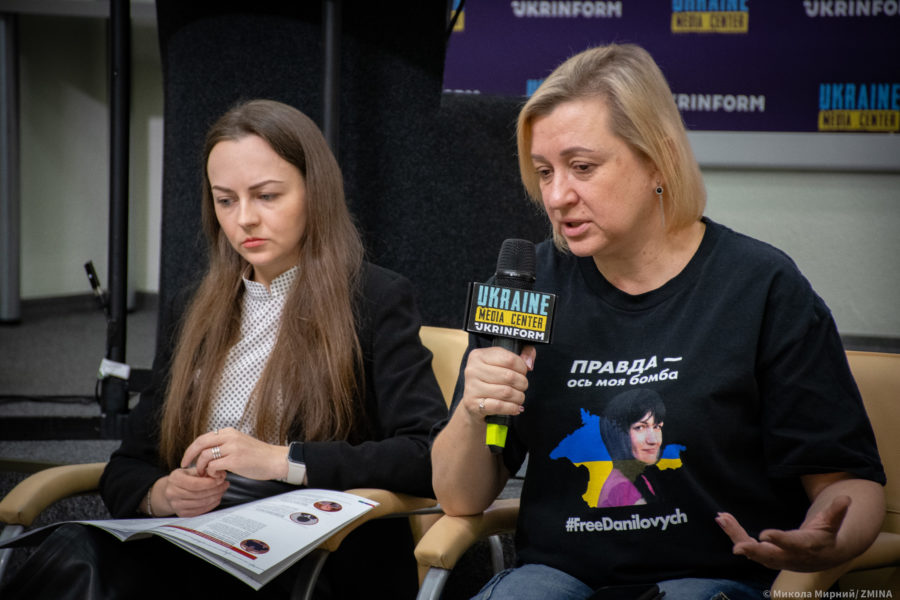 Viktoria Nesterenko and Iryna Siedova
Viktoria Nesterenko and Iryna SiedovaHuman rights defenders will submit information and evidence on all criminals to state authorities to open criminal proceedings and impose sanctions. Also, these lists will be handed over to the representatives of the European Union and the USA to put these persons on the international sanctions lists.
However, according to Siedova, the published lists of occupiers are only the tip of the iceberg.
“This public list highlights only those whom we currently propose to put on the sanctions lists. In addition, there are repeat offenders who have been under sanctions for a long time and remain unpunished. In total, our database includes more than 90 people whom we suspect of prosecuting Crimean journalists. Some criminals are suspected of prosecuting several journalists and bloggers at once. Special responsibility for these crimes also rests with the representatives of the Russian prosecutor’s office and the judiciary. Prosecutors turn a blind eye to torture, and judges falsify criminal cases against innocent people. Therefore, civil society, together with law enforcement agencies, must make every effort to ultimately bring all the guilty to justice,” the human rights activist emphasized.
Watch the press conference here.
If you have found a spelling error, please, notify us by selecting that text and pressing Ctrl+Enter.

